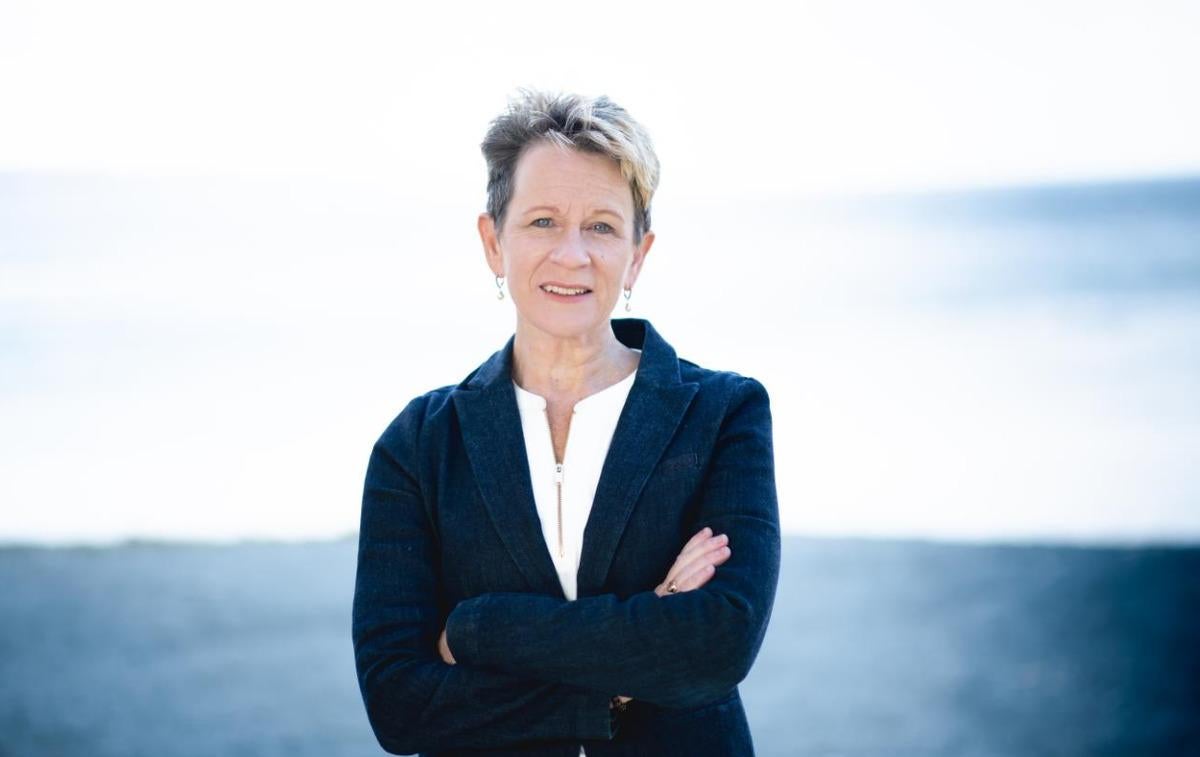Dr. Michelle Ploughman
Professor

Professor, Faculty of Medicine, Memorial University of Newfoundland
Dr. Ploughman is a neuroscientist and physiotherapy researcher focusing on creating novel and potentially powerful rehabilitation interventions that not only restore function but that also promote brain plasticity. She has used knowledge gained from my 30 years of experience in stroke and MS rehabilitation to try and solve problems that are important for patients and provide better tools for health providers. She is a Canada Research Chair (Tier II) in Rehabilitation, Neuroplasticity and Brain Recovery and Professor in Physical Medicine and Rehabilitation in the Faculty of Medicine, Memorial University.
Her interest has always been in determining the effects of rehabilitation intensity on recovery of function so her first clinical trial, as part of her Master’s thesis tested Constraint-Induced Movement Therapy, an intense two-week arm and hand treatment, in a stroke inpatient rehabilitation unit. Dr. Ploughman’s doctoral work, funded by a fellowship from the Heart and Stroke Foundation (HSF)/CIHR, explored the mechanistic aspects of exercise intensity on neurotrophins and synaptic and dendritic modification in an animal model of stroke. She completed her post-doctoral fellowship with the endMS Regional Research and Training Centre at Dalhousie University. She held a highly competitive CIHR post-doctoral fellowship, obtained funding and then capitalized on her extensive national network to conduct the largest survey of health and aging with MS in Canada.
She launched Newfoundland and Labrador’s first rehabilitation research program, opening her laboratory (the Recovery & Performance Laboratory) in our tertiary rehabilitation hospital in 2014. Funded by CFI, the laboratory is equipped with exercise testing and training suite (metabolic cart, treadmill with safety harness, recumbent trainer, heart rate monitors), brain excitability measurement station using Magstim BiStim and Brainsight Neuronavigation, an instrumented walkway to measure gait and balance (Protokinetics), private assessment area with hydraulic plinth and data collection and analysis hardware and software.
Learn more about Dr. Ploughman
Have you engaged with members of the public, specifically people who are affected by MS? If so, please explain?
Patient Engagement is critical to everything we do. People with MS serve in a formal advisory committee that directs our program of research. My research is designed around what MS patients have told me their problems are, both in my lab and when I worked as a physiotherapist. I have provided multiple local, regional and national presentations and group discussions with people with MS, health providers and policy makers. Because of the strong relationships my lab has built with our MS community, our local MS chapter has worked with me to implement community-based exercise program for people with disabilities in our city.
How did you become interested in MS research? What inspires you to continue advancing research in this field?
When I was working as a physiotherapist in an MS clinic it became clear to me that patients were receiving mixed and sometimes conflicting information regarding exercise and rehabilitation. I discovered that, unlike other neurological conditions such as stroke, there was very weak evidence to support exercise and rehabilitation in MS at the time. I set about to change that. I learned that older people with MS, who had lived with the disease for decades were a very important source of wisdom in order to learn how to live a long and healthy life with MS. My interactions with these older people spurred me on to undertake a national survey of health and aging with MS with 743 participants from coast-to-coast. Furthermore, I was determined to improve the care of people with MS because several of my classmates and colleagues have MS and I wanted better options for them.
What do you enjoy most about doing research and what are some of the challenges you face?
I’ve always enjoyed being able to engage with our participants and see the direct impact of my research on the individual level. Supervising my students and helping them develop the skills in order to become the next generation of researchers is very rewarding. My greatest challenge, of course, is securing funding for research projects and for graduate student stipends. Convincing granters that our research is valuable and impactful can certainly be challenging in this field.
Describe the importance and level of collaboration in your research?
To be successful in the type of research I do (clinical intervention trials), partnerships with other researchers and laboratories are critical. I collaborate with scientists in almost every province in Canada and internationally. Furthermore, I collaborate intensely with people with MS in order to make sure we target our efforts to address problems that are meaningful for patients. Research is a huge effort and collaboration helps ensure that the outputs are powerful and game-changing. For example, beginning in 2015, myself, Dr. Craig Moore, MS neurologist Dr. Mark Stefanelli and the MS community in Newfoundland and Labrador, created the Health Innovation Team in MS (HITMS) registry, a database of annual clinical, upper and lower limb performance, cognition, brain excitability, fitness, and neuroimmune profiles. The intent of this registry is to understand how health and lifestyle factors, such as fitness, interact with neuro-immune axis and epigenetics to impact MS progression. To date, we have enrolled 210+ MS patients (500+ individual patient visits). We hope that our discoveries will make meaningful impacts on the lives of people with MS for years to come.